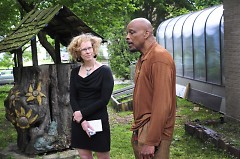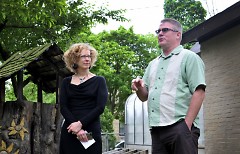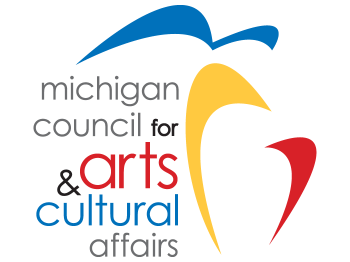Tami VandenBerg is proving herself to be much more than a successful bar and club owner—she’s adding grantwriter to her resume. Today, she, in her part-time role as executive director of Well House, announced that The W.K. Kellogg Foundation approved a grant to Well House for $257,000 over two years.
The grant will support access to housing, healthy food and community engagement for homeless people in Grand Rapids.
“This grant changes things greatly, profoundly for Well House. We’re going to be able to fast forward all of our strategies and plans,” says VandenBerg. “Our dream of ending homelessness in Grand Rapids is a bit closer to coming true.”
The Kellogg Foundation funds will be used to purchase three additional homes in the Well House neighborhood (Cass Street SE) allowing the organization to move an additional 25-35 currently homeless people into safe, affordable housing each year. “Well House specifically targets homeless individuals and families that have been denied other housing options for the homeless population,” says VandenBerg.
In addition to housing, the Kellogg grant includes funding to expand Well House’s urban farm and provide employment to 10-20 tenants each year. “The employment opportunities will be on the farm or working to rehabilitate the houses purchased with the grant,” VandenBerg says. Through the farm and greenhouse, which are located on a vacant lot adjacent to the three existing Well House properties, the organization expects to provide significant amount of fresh produce to its tenants and neighborhood residents.
“The W.K. Kellogg Foundation is honored to support the great work of Well House. We believe their commitment to community engagement throughout all of their work will help support the neighborhood and families in creating their own conditions for success and healthy living,” says Andrew Brower, program officer for the W.K. Kellogg Foundation.
The grant includes a community engagement component. “We will provide meaningful volunteer opportunities for community members to work side by side with tenants on the farm or rehabilitating the houses,” VandenBerg says. It is expected that 75-100 volunteers will complete a Well House orientation to introduce the organization’s model of Housing First, as well as the importance of food justice and inclusion.
Founded in 1977, Well House is built on the theory that providing housing first for homeless people is the most direct way to manage the other issues they might be facing including unemployment, mental illness, addiction or others.
Disclosure: Roberta F. King is board chair for Well House.
The Rapidian, a program of the 501(c)3 nonprofit Community Media Center, relies on the community’s support to help cover the cost of training reporters and publishing content.
We need your help.
If each of our readers and content creators who values this community platform help support its creation and maintenance, The Rapidian can continue to educate and facilitate a conversation around issues for years to come.
Please support The Rapidian and make a contribution today.



